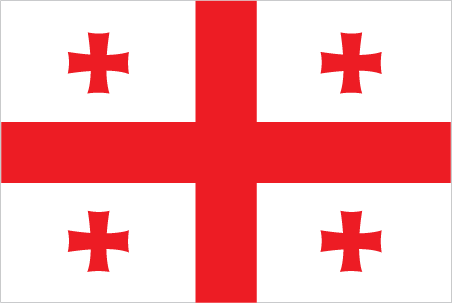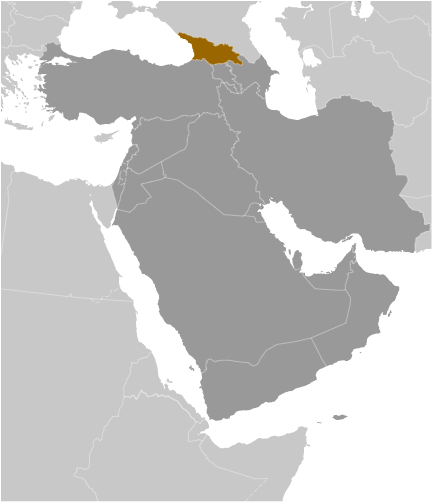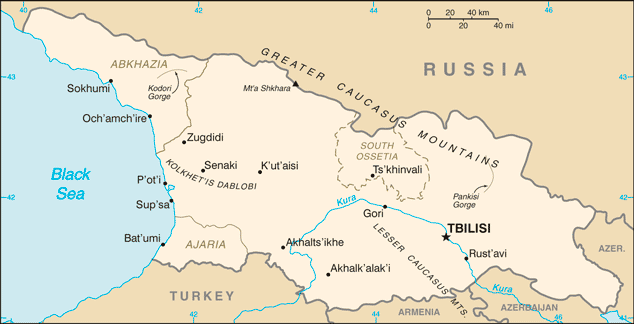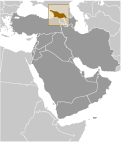
|
|
Advertisements:
People And SocietyNationality
Noun Georgian(s)
Adjective Georgian Ethnic groups
Georgian 83.8%, Azeri 6.5%, Armenian 5.7%, Russian 1.5%, other 2.5% (2002 census) Languages
Georgian (official) 71%, Russian 9%, Armenian 7%, Azeri 6%, other 7% Note Abkhaz is the official language in Abkhazia Religions
Orthodox Christian (official) 83.9%, Muslim 9.9%, Armenian-Gregorian 3.9%, Catholic 0.8%, other 0.8%, none 0.7% (2002 census) Population World Ranking: 122
4,570,934 (July 2012 est.)
Age structure
0-14 years
15.6% (male 383,856/female 333,617) 15-64 years 68.3% (male 1,511,844/female 1,620,727) 65 years and over 16% (male 293,143/female 442,687) (2011 est.) Median age
Total 39.3 years
Male 36.8 years Female 41.8 years (2012 est.) Population growth rate World Ranking: 213
-0.327% (2012 est.)
Birth rate World Ranking: 178
10.75 births/1,000 population (2012 est.) Death rate World Ranking: 53
10.05 deaths/1,000 population (July 2012 est.) Net migration rate World Ranking: 188
-3.96 migrant(s)/1,000 population (2012 est.) Urbanization
Urban population 53% of total population (2010)
Rate of urbanization -0.4% annual rate of change (2010-15 est.) Major cities - population
TBILISI (capital) 1.115 million (2009) Sex ratio
At birth 1.11 male(s)/female
Under 15 years 1.15 male(s)/female 15-64 years 0.94 male(s)/female 65 years and over 0.66 male(s)/female Total population 0.91 male(s)/female (2011 est.) Maternal mortality rate World Ranking: 90
67 deaths/100,000 live births (2010) Infant mortality rate World Ranking: 118
Total 14.68 deaths/1,000 live births
Male 16.58 deaths/1,000 live births Female 12.59 deaths/1,000 live births (2012 est.) Life expectancy at birth World Ranking: 65
Total population 77.32 years
Male 73.99 years Female 81 years (2012 est.) Total fertility rate World Ranking: 191
1.46 children born/woman (2012 est.) Health expenditures World Ranking: 16
11.3% of GDP (2009)
Physicians density
4.538 physicians/1,000 population (2007) Hospital bed density
3.32 beds/1,000 population (2007) Hiv/aids - adult prevalence rate World Ranking: 125
0.1% (2009 est.)
Hiv/aids - people living with hiv/aids World Ranking: 126
3,500 (2009 est.)
Hiv/aids - deaths World Ranking: 137
Fewer than 100 (2009 est.)
Children under the age of 5 years underweight World Ranking: 106
2.3% (2005)
Education expenditures World Ranking: 122
3.2% of GDP (2009)
Literacy
Definition
Age 15 and over can read and write Total population 99.7%Male 99.8% Female 99.7% (2010 est.) School life expectancy (primary to tertiary education)
Total 13 years
Male 13 years Female 13 years (2009) Unemployment, youth ages 15-24 World Ranking: 11
Total 35.5%
Male 32.4% Female 40.7% (2008)
Comments
Add a new comment: |
Advertisement
Members area
Georgia (Tbilisi):
 
GPS points from Georgia (Tbilisi)
|
||||||||

 The region of present day Georgia contained the ancient kingdoms of Colchis and Kartli-Iberia. The area came under Roman influence in the first centuries A.D. and Christianity became the state religion in the 330s. Domination by Persians, Arabs, and Turks was followed by a Georgian golden age (11th-13th centuries) that was cut short by the Mongol invasion of 1236. Subsequently, the Ottoman and Persian empires competed for influence in the region. Georgia was absorbed into the Russian Empire in the 19th century. Independent for three years (1918-1921) following the Russian revolution, it was forcibly incorporated into the USSR in 1921 and regained its independence when the Soviet Union dissolved in 1991. Mounting public discontent over rampant corruption and ineffective government services, followed by an attempt by the incumbent Georgian government to manipulate national legislative elections in November 2003 touched off widespread protests that led to the resignation of Eduard SHEVARDNADZE, president since 1995. In the aftermath of that popular movement, which became known as the "Rose Revolution," new elections in early 2004 swept Mikheil SAAKASHVILI into power along with his United National Movement party. Progress on market reforms and democratization has been made in the years since independence, but this progress has been complicated by Russian assistance and support to the separatist regions of Abkhazia and South Ossetia. Periodic flare-ups in tension and violence culminated in a five-day conflict in August 2008 between Russia and Georgia, including the invasion of large portions of undisputed Georgian territory. Russian troops pledged to pull back from most occupied Georgian territory, but in late August 2008 Russia unilaterally recognized the independence of Abkhazia and South Ossetia and Russian military forces remain in those regions.
The region of present day Georgia contained the ancient kingdoms of Colchis and Kartli-Iberia. The area came under Roman influence in the first centuries A.D. and Christianity became the state religion in the 330s. Domination by Persians, Arabs, and Turks was followed by a Georgian golden age (11th-13th centuries) that was cut short by the Mongol invasion of 1236. Subsequently, the Ottoman and Persian empires competed for influence in the region. Georgia was absorbed into the Russian Empire in the 19th century. Independent for three years (1918-1921) following the Russian revolution, it was forcibly incorporated into the USSR in 1921 and regained its independence when the Soviet Union dissolved in 1991. Mounting public discontent over rampant corruption and ineffective government services, followed by an attempt by the incumbent Georgian government to manipulate national legislative elections in November 2003 touched off widespread protests that led to the resignation of Eduard SHEVARDNADZE, president since 1995. In the aftermath of that popular movement, which became known as the "Rose Revolution," new elections in early 2004 swept Mikheil SAAKASHVILI into power along with his United National Movement party. Progress on market reforms and democratization has been made in the years since independence, but this progress has been complicated by Russian assistance and support to the separatist regions of Abkhazia and South Ossetia. Periodic flare-ups in tension and violence culminated in a five-day conflict in August 2008 between Russia and Georgia, including the invasion of large portions of undisputed Georgian territory. Russian troops pledged to pull back from most occupied Georgian territory, but in late August 2008 Russia unilaterally recognized the independence of Abkhazia and South Ossetia and Russian military forces remain in those regions.